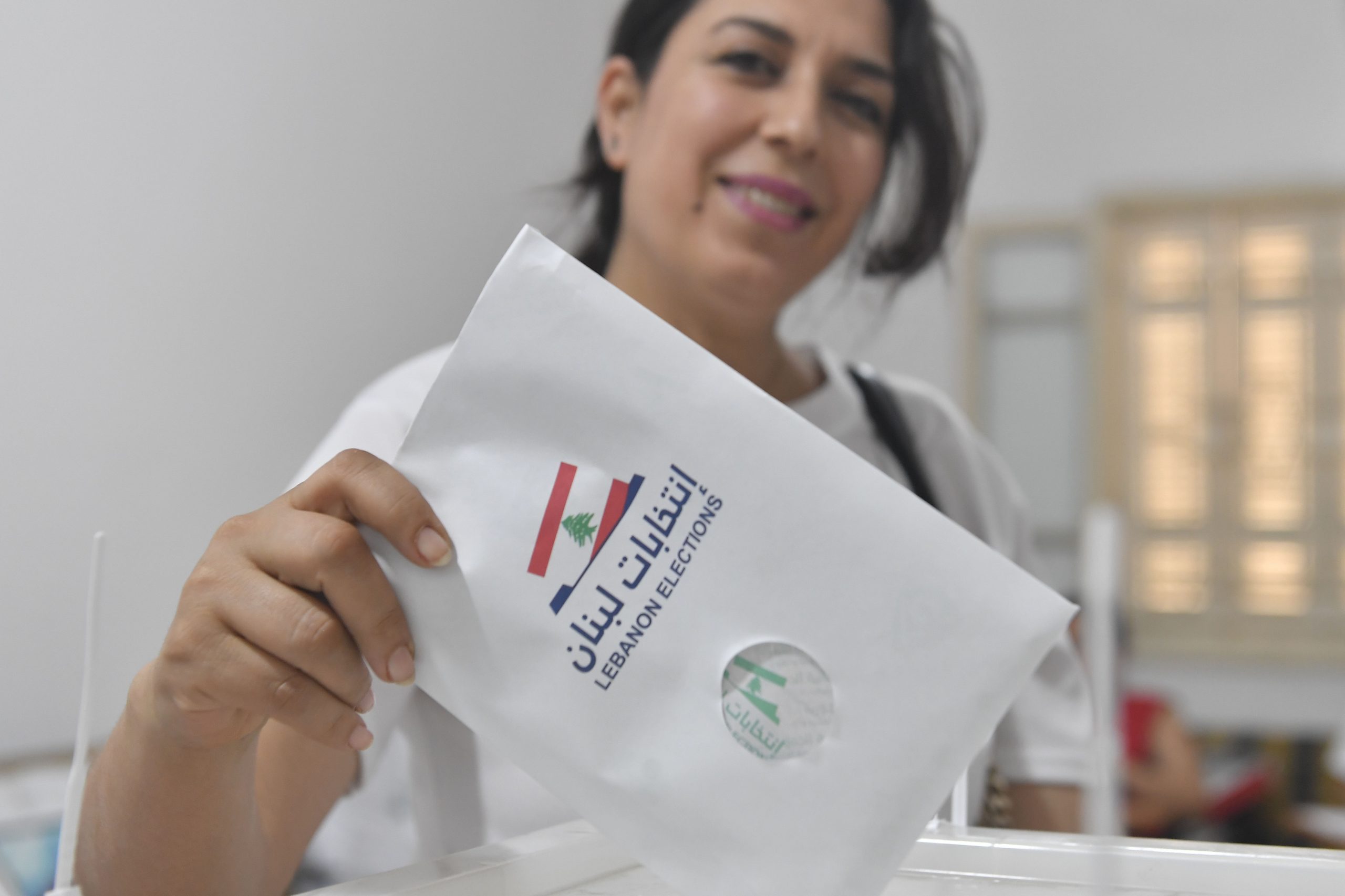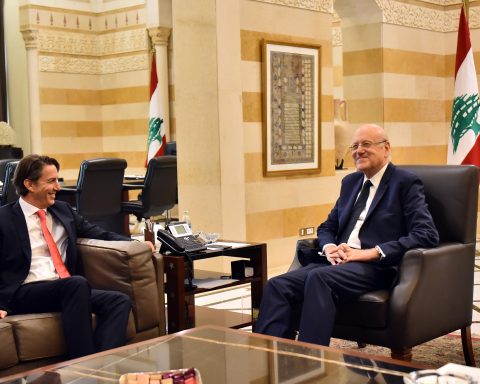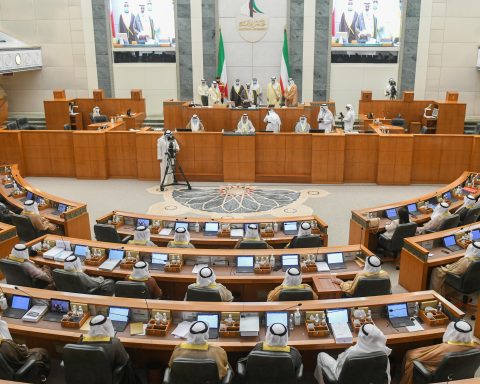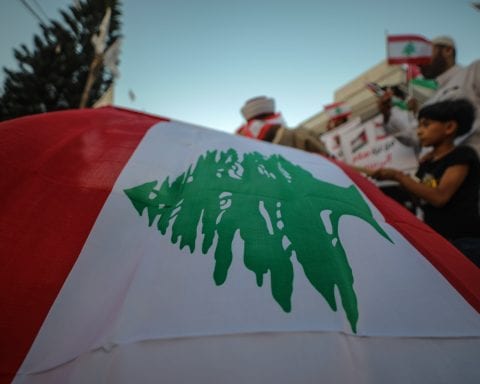Divided between the sectarian groups and destabilized by the involvement of the effective regional actors, Lebanon always faces the inter and between sectarian bargains and rivalries. In this context, particularly parliamentary elections shape the course and results of these bargains. Whether the recent elections will follow a similar path or not constitute the basic impetus for the possible change of the entrenched sectarian order in Lebanon.
Shattering traditional alliances
While Hezbollah and its alliances, identified as the March 8 Bloc, previously dominated the Lebanese system, they encountered a critical loss as a result of their radical opposition to the powerful reform demands following the October 17 protests. Despite Hezbollah’s and Amal’s protection of their hegemonic position in Shiite segments with their 27-28 elected deputies, its main Christian (Maronite) ally, the Free Patriotic Movement (FPM), lost its leading position both in the general elections and specifically in Maronite society. When considering the upcoming election of a Maronite president by the parliament, the importance of this loss can be better understood. Since the 2018 elections, when the Hezbollah-led alliance gained a majority in parliament, this bloc has had a great opportunity and leverage to designate the legislative and executive bodies via its control of the cabinet and presidency. In this manner, Hezbollah was able to deflect any criticism and challenge on the maintenance of its armed forces, as well as its unique and fairly active involvement in Syrian affairs, which always led to serious internal conflicts in Lebanon.
Therefore, if the anti-Hezbollah alliance, which is now enthusiastically embraced by not a Sunni actor but a Maronite actor, that is, the Lebanese Forces, and should anti-establishment forces and candidates be successful in consolidating their parliament power, they can have the possibility to reverse or at least to limit unconstrained Hezbollah’s position in Lebanon’s system. In this context, shaking Aounist dominance in the Maronite community can pose a critical challenge to the dominance of the Hezbollah-Amal alliance called the “Shia Duo”. Following their long marginalization and limited political position, the “Shia Duo” managed to gain control of the system through Aoun-based Maronite actors. In this system, the March 14 alliance, mainly under Saad al-Hariri’s Future Party leadership, tried to countervail Hezbollah’s dominancy. However, they failed to realize this, which weakened both their domestic power and irritated their regional supporters, specifically Saudi Arabia and United Arab Emirates (UAE), which concentrated on containing Iran and provided economic and political support for the March 14 actors. The apparent replacement of al-Hariri’s leadership with Samir Geagea to balance Hezbollah would be a different result of the recent elections, over which, for some time, seemed to be considered and to be invested in. In other words, before the elections, Sami Geagea attempted to champion the anti-Hezbollah bloc with its stronger support for the October 17 protests, occasional conflicts with Hezbollah-Amal supporters, its unwavering advocacy for the Beirut blast investigation, which Hezbollah refused, and its refusal of involvement in any Hezbollah-led alliance government formations. It remains to be seen whether this policy will provide Geagea with the presidency since Geagea is alleged to be the stronger candidate for this post. Yet, for the moment, Geagea obtained some earlier internal and regional advantages by shaking not only Aounist hegemony in Maronite society but also Hezbollah-led alliance hegemony in Lebanese politics.
Initial observations on the “new” alliances and expected changes
The critical result of the May 15 elections was the entrance of anti-establishment forces into the parliament as an alternative force, which, for now, seems to radically oppose the embedded sectarian system, the maintenance of Hezbollah’s armed forces and the collapsed state system, which mostly serve the interests of the geography, sectarian and family-based divisions in Lebanon. Unlike these traditional forces and actors which include Lebanese Forces despite their anti-Hezbollah stance, anti-establishment actors raise the essential criticisms of the existing system, arguing that it never brings fair, equal, non-sectarian and functional order capable of effectively and transparently resolving the multi-faceted and long-term problems confronting the Lebanese people. Therefore, the critical transformation in the Lebanese political system will be brought about by an alliance between anti-establishment forces and anti-Hezbollah forces. In this possible alliance, the main transformative dynamic will be related to whether the anti-Hezbollah camp, which is now led by not Sunni but Maronite actors, will accommodate the demands of anti-establishment forces or not. In other words, following the elections, Lebanese politics witnessed not the traditional bi-polar order but a nascent tripolar system that involved pro-Hezbollah, anti-Hezbollah and anti-establishment forces. As neither force has adequate power to transform the existing system, there will probably be bargains between the groups, in particular between anti-Hezbollah and anti-establishment forces. In this sense, the main determinant for the possible cooperation between anti-Hezbollah and anti-establishment actors will be related to anti-Hezbollah forces’ sympathy and enthusiasm concerning the radical steps to reform the system. However, given the foreign supporters of the anti-Hezbollah camp, such as Saudi Arabia and the UAE, and their hesitant positions toward radical change in the Lebanese system, as well as the possible advantages anti-Hezbollah forces can gain from the existing order, it remains unclear whether they can take radical steps in the expected reform process and gain long-term support from anti-establishment forces.
These possibilities will be clear first with the election of the speaker of parliament, the formation of the cabinet, and then the election of the president by parliament. If anti-Hezbollah and anti-establishment deputies can cooperate and follow different paths, then we can talk about further possibilities in the reform process. Normally, traditional concerns such as the sectarian power balance between major sectarian groups and inside them, as well as regional interventions, the protection of family-based concerns, and the maintenance of sectarian systems, dominated previous bargains in these processes. As a result, the preliminary indications of the real and effective change can be simply observed in the probable changes of the mentioned actors. But the most difficult transformation is with regard to the substantial domestic and regional policies such as the contested status of Hezbollah’s military forces, possible agreement with Israel on disputed maritime-territorial problems, the recovery agreement with the IMF, the reform of the sectarian system and the removal of sectarian patterns in the system, and the empowerment of state and cabinet mechanisms on the basis of democratic, non-sectarian and other raised demands by popular sections. However, when considering Hezbollah’s reaction to the existing government in May 2008, when the government questioned Hezbollah’s military forces and tried to limit its political power, there still exists a fundamental quandary regarding Hezbollah’s possible reactions to new realities in Lebanon’s politics. In 2008, Hezbollah mobilized its armed forces and controlled the capital, thus forcing the government to accede Hezbollah’s demands. Afterward, Hezbollah consolidated its power with its impact on both legislative and executive mechanisms. Therefore, it turned into a basic status quo actor. In other words, if anti-Hezbollah and anti-establishment forces question and try to change the existing system, Hezbollah and its allies will likely refuse this process. Furthermore, given their regional patrons’ rivalry and conflicts, such as Iran and Saudi Arabia, the current novelty in Lebanon politics, with the rise of Lebanese Forces as the leading actor in the anti-Hezbollah camp and the emergence of anti-establishment forces, can simply be drawn into traditional patterns while seeking radical transformation.














